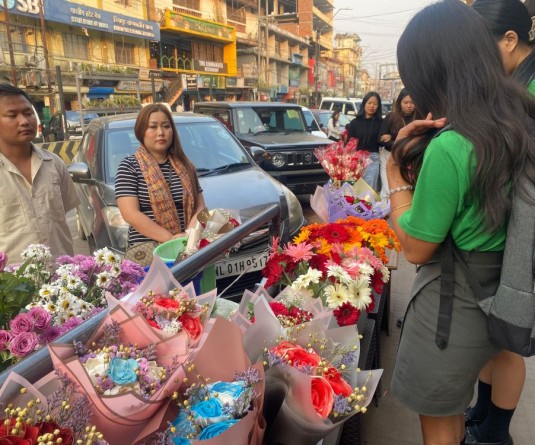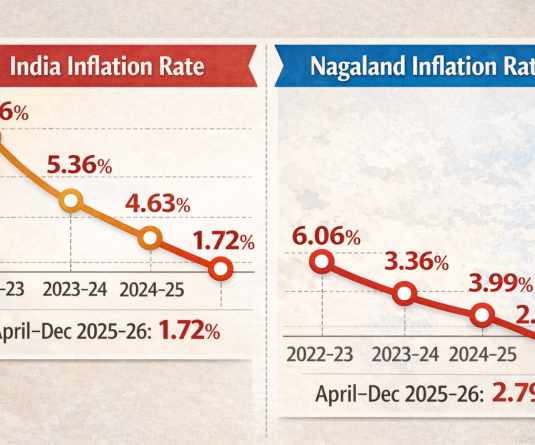In this photo taken on January 29, 2017, children are seen playing an indigenous game called Kim at Wui village under Tuensang district. (Morung File Photo | For representational purpose only)
What a new social contract means for Nagas as the world celebrates International Day of the World’s Indigenous Peoples 2021
Morung Express News
Kohima | August 8
The UN’s International Day of the World’s Indigenous Peoples on August 9 is often observed across the world in various ways- some with celebration, some with protest, and some in solemnity.
The 2021 theme ‘Leaving No One Behind: Indigenous peoples and the call for a new social contract’, urges for building and redesigning a new social contract that is inclusive and serves the interest of the indigenous peoples. It also indicates respect and dignity for the Indigenous peoples’ own forms of governance and ways of life.
For Khuvishe (President, Lazami Students Union), a new social contract must reduce the rich-poor gap which is visible since the last decade. “Equality, in the Naga context, is far from reality because of rampant corruption starkly distinguishing the rich and the poor. The need to reduce this gap is paramount to deal with,” says Khuvishe.
Although appreciative of the intention of the Day and the theme, Neingulo Krome, Secretary General, Naga People’s Movement for Human Rights (NPMHR) feels that ‘the attitude can often be seen as a patronizing one towards Indigenous peoples’.
“And looking at the way things are happening in the Naga context, the call for a new social contract somehow is amounting for Nagas to compromise some of our basic principles which are close to our hearts and identity as Indigenous peoples,” says Krome.
Sharing similar sentiments, Gam Shimray, Secretary General, Asian Indigenous Peoples Pact (AIPP) remarks that there is a ‘meaning crisis’ today in the context of the Nagas and for many other Indigenous communities, where there is need to “uncover and recover the meaning of the existential vows that we have taken as a people to be able and to find meaning to the new mode of being that we are looking for.”
“The idea of social contract is to do with deep existential commitment to our mode of being for any given people for their continuity and meaning making in life. This was symbolically represented with the establishment of our villages which some call it “Naga village republics”, says Gam Shimray. While these symbols are the representative face of the Naga identity, Shimray asserts that it is also representative of the soul of the Naga identity.
However, a fundamental problem confronting Nagas today is the failure to generate public opinion on any important issue that involves the people, which is indicative of Nagas descending to chaos. “This is the sign that our public institutions- from village institutions to Naga Hoho, including state institutions and Naga organizations are failing or are falling apart,” Shimray opines, adding that the failure to generate public opinions will have far reaching consequences in the form of more divisions and chaos. This will require institutions and leaders with imagination for institutional reconstruction and governance that will guide and nurture agency of the individuals and communities.
“What do we mean by uniqueness of Naga history if it is not about the uniqueness of Naga identity that is symbolized by the above? Can we do it if our identity is in a tatter? What will the future Naga Constitution be if what underlies Naga identity (the soul) is not uncovered and recovered? Wouldn’t the foundation of our existence as a people be missing?” are questions Shimray raises for Nagas to reflect on.
Accordingly, Shimray, the Naga’s struggle for self-determination will have to be ‘meaning making and peacemaking and not just about confronting the adversaries and keeping them out’. He further suggests two ways: Reconciliation to pave the way to generate public opinion, and self-determination as a meaning making and peacemaking to recover our mode of being as well as define our future.
As for Krome, “Nagas cannot afford to be complacent with all the approaches that try to define our humanity through other people’s views. We are who we are and no social contract can take that away from us.”





